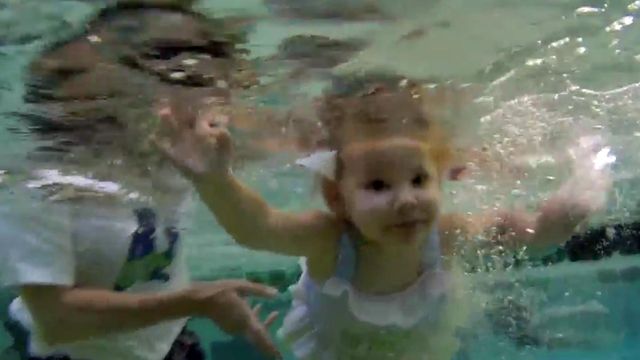Be a lifeguard: Stay alert to prevent childhood drownings
With Memorial Day weekend just around the corner, many families are preparing for their first visits this year to the beach or a public or private pool. The end of May is often a good time for this stark reminder - drowning is the second leading cause of injury related death in children under the age of 14. About 1,000 deaths each year are the result of unintentional drowning.
Posted — UpdatedAbout 1,000 deaths each year are the result of unintentional drowning, although the number of drowning deaths has fallen by 17 percent since 2010.
Preventing drowning deaths begins with the obvious. Parents should look for every chance to teach their children to swim.
"It's always good to make sure that children know how to swim. And children as young as a few months old can get used to being in the water," Cleveland Clinic Dr. Neha Vyas said. "They have special swim schools nowadays so that children can learn to blow bubbles and just get used to the water."
Swim instructors say the most important skill to have is to know how to float if you're in water and in distress.
That's especially true in situations where there is alcohol involved, such as holiday weekend cookouts.
Make sure there is an adult who is not drinking designated to watch children who are swimming.
A recent national poll shows that parents often underestimate the risk of drowning in pools where there is no lifeguard present. Thirty-seven percent of parents polled said they would allow their child to swim unsupervised in a home, hotel or neighborhood pool.
"(Drownings) occur very rapidly, and they occur without warning, so it's very important to have your eyes on the pool or body of water and not necessarily just your ears," Vyas said.
Lisa Goldstein said she always keeps an eye on her children in the water, ever since she lived in Florida and had young twins.
"We lived on a canal, and it was imperative to have the water safety," said Goldstein, who now lives in Rolesville and also has an 18-month-old son. "It just takes a blink of the eye. One child calling your name and looking away, and he could get into harm's way."
Drowning often happens silently, with little splashing or calls for help.
Officials from the Centers for Disease Control and Prevention also say it's important for swimmers to be aware of recreational water illnesses, which are caused by germs from contaminated bodies of water.
These illnesses can often result in symptoms such as gastrointestinal distress, rashes and ear and respiratory infections.
• Credits
Copyright 2024 by Capitol Broadcasting Company. All rights reserved. This material may not be published, broadcast, rewritten or redistributed.






